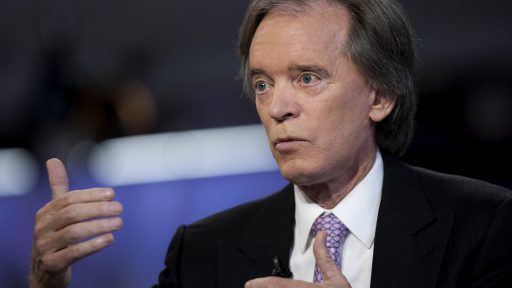- Home
- >
- Great Traders
- >
- Bill Gross: Cheap is not always cheerful in value investing

Bill Gross: Cheap is not always cheerful in value investing

Financial jargon regularly includes reassuring sound bites for investors to hide behind to achieve a sense of portfolio security. Over time these become established collective wisdom that remains unchallenged — with potentially dangerous consequences for investors.
Chief among them are investments described as cheap and recommended to investors for that very reason. This sound bite is often viewed as so evident and self-explanatory that it requires no further, detailed exploration or even challenge. Cheap is deemed attractive and lowers investment risk; expensive is viewed with suspicion, is dangerous and heightens the risk of losing money.
According to this established view, the main leading indicator of whether a publicly listed investment is cheap or expensive is its price-to-earnings (PE) ratio. Bill Gross, the famed US investor, has been at the forefront of international fixed income for more than four decades. He recently warned US stocks could fall up to 10 per cent next year.
Investors, he added, should seek cheap stocks with high dividend yields to protect them from losing money. Although cheap stocks are often attractive to US investors, the priority afforded to low PE ratios and high dividend yields is more predominant in the City of London. Their appeal has become more magnetic during times of what people describe as abnormally low interest rates and when the prospects of higher rates seem distant.
The reasoning that culminates in recommending “safety in value” ignores important clues hidden behind the headline PE ratio of a stock or its nominal dividend yield. These clues are not touched upon by Mr Gross.
Among them, expected earnings growth is clearly an important factor, but so are the returns on invested capital and the reinvestment rate of earnings to produce that same return over and above its cost of capital, known as the equity risk premium.
High dividend distribution can equally be an early signal of deteriorating growth prospects, of misallocation of capital or of a higher reinvestment rate required to produce the same return. It can be a bit of all three. The stock market will be the first to recognise this early warning signal and value the business accordingly. Investors may be keen to buy more shares as these fall, both in value and in price, but must also take into account the early signs of a slowdown in future business prospects.
If earnings growth were the only feature in a PE ratio and two companies were growing at the same rate and subjected to the same cost of capital and risk premium, the investor could expect identical PE ratios. But this is far from being the case, since the other ingredients are equally important parts of the equation.
Of these, the return on invested capital forms the base from which earnings can grow and compound into the future, not least thanks to good capital allocation by management. But there is one, important caveat. If the rate of earnings growth is consistently higher than the return on invested capital, value will eventually be destroyed and a high PE ratio not warranted. This is because a business cannot grow its earnings faster than its return on invested capital without either liquidating its assets or adversely changing its capital structure.
The contrary, a low PE, will more likely be the case. And if the PE is low, making it a seemingly attractive investment, it is important to remember that it can always go lower and lose the investor money nonetheless.
Equally, if generous dividends are paid despite a low return on invested capital accompanied by respectable earnings growth, the attractive dividend yield would signal that the business’s reinvestment expectations are low or losing steam. For lack of better allocation, the payout ratio to shareholders will rise. But the stock market would give early warning that the business’s return profile was deteriorating, resulting in a thumbs down and a modest PE ratio. For Mr Gross and many other esteemed “value” investors, it would constitute an attractive investment opportunity and less risk. But things are not always what they seem.
Source: FT
 Trader Georgi Bozhidarov
Trader Georgi Bozhidarov Read more:
If you think, we can improve that section,
please comment. Your oppinion is imortant for us.











